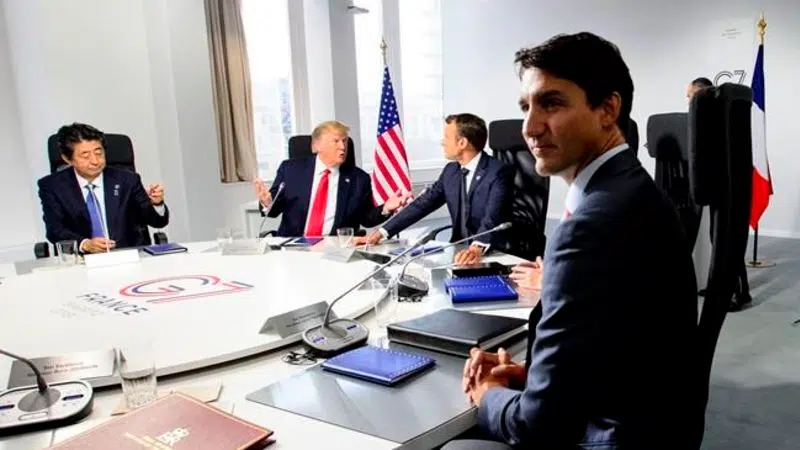
This time, Trudeau keeps low profile at G7 as election campaign looms
BIARRITZ, France — He may have spent the weekend an ocean away from home, rubbing elbows with world leaders during tense talks on international crises, but Prime Minister Justin Trudeau kept cool, collected and decidedly out of the fray.
For a political leader who thrives in the flash of cameras and curated social media content, it was an uncharacteristic approach for Trudeau at the G7 summit in Biarritz, France, which wrapped up Monday.
With the start of an election campaign just weeks away, Trudeau kept things low-key. He steered a wide berth around the debris field trailing U.S. President Donald Trump, save for one largely uneventful bilateral meeting, and stayed focused squarely on the Liberal party’s key election talking points: the economy, taking action on climate change and raising the fortunes of the middle class.
In their meeting Sunday, Trudeau praised the new, albeit not yet ratified, free trade agreement between Canada, the U.S. and Mexico, a favourite subject of Trump’s. Gone was the tough talk about Canada not being pushed around — a sentiment that triggered a Twitter tantrum from the confines of Air Force One in the final moments of last year’s G7 meeting in Charlevoix, Que.


